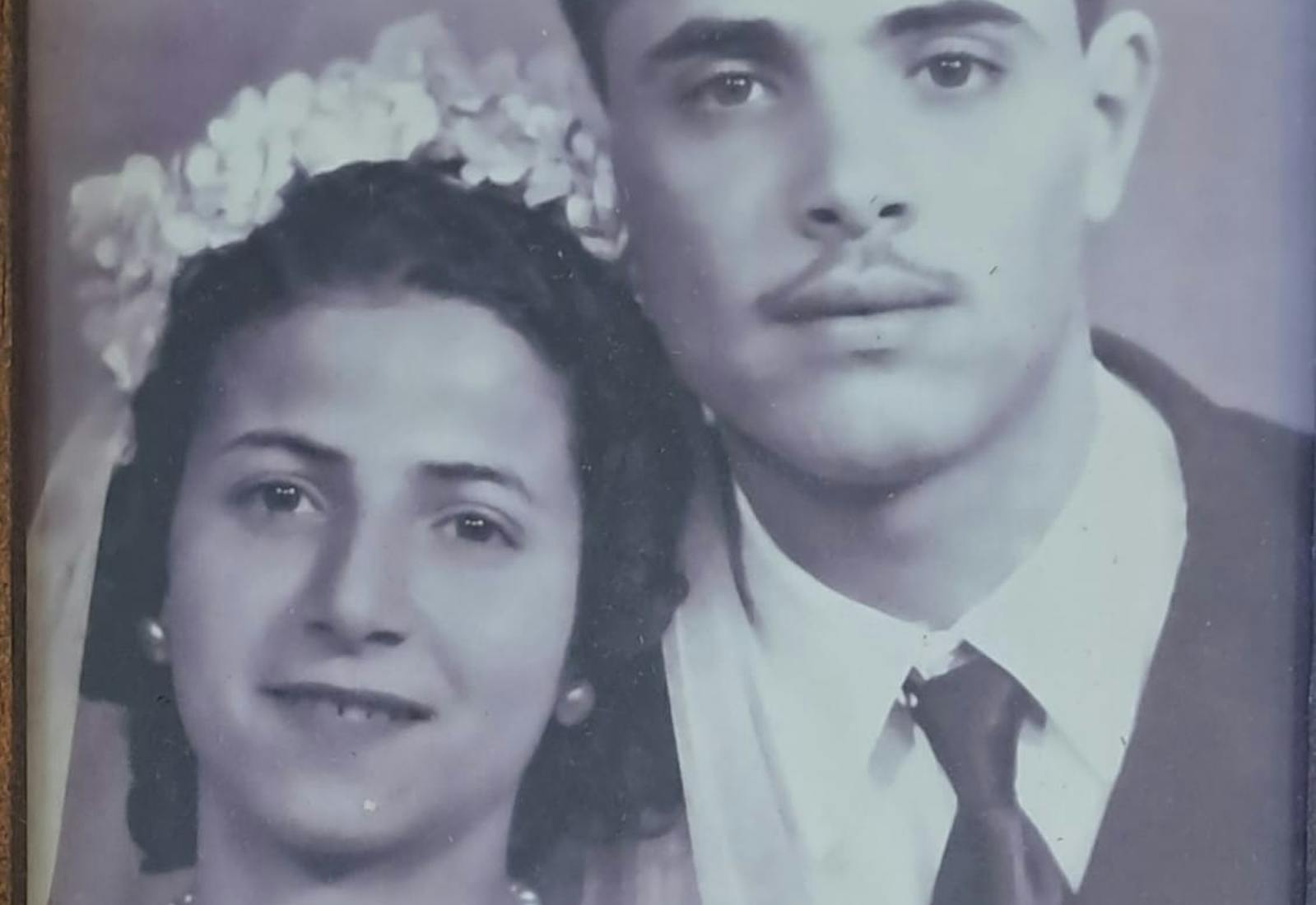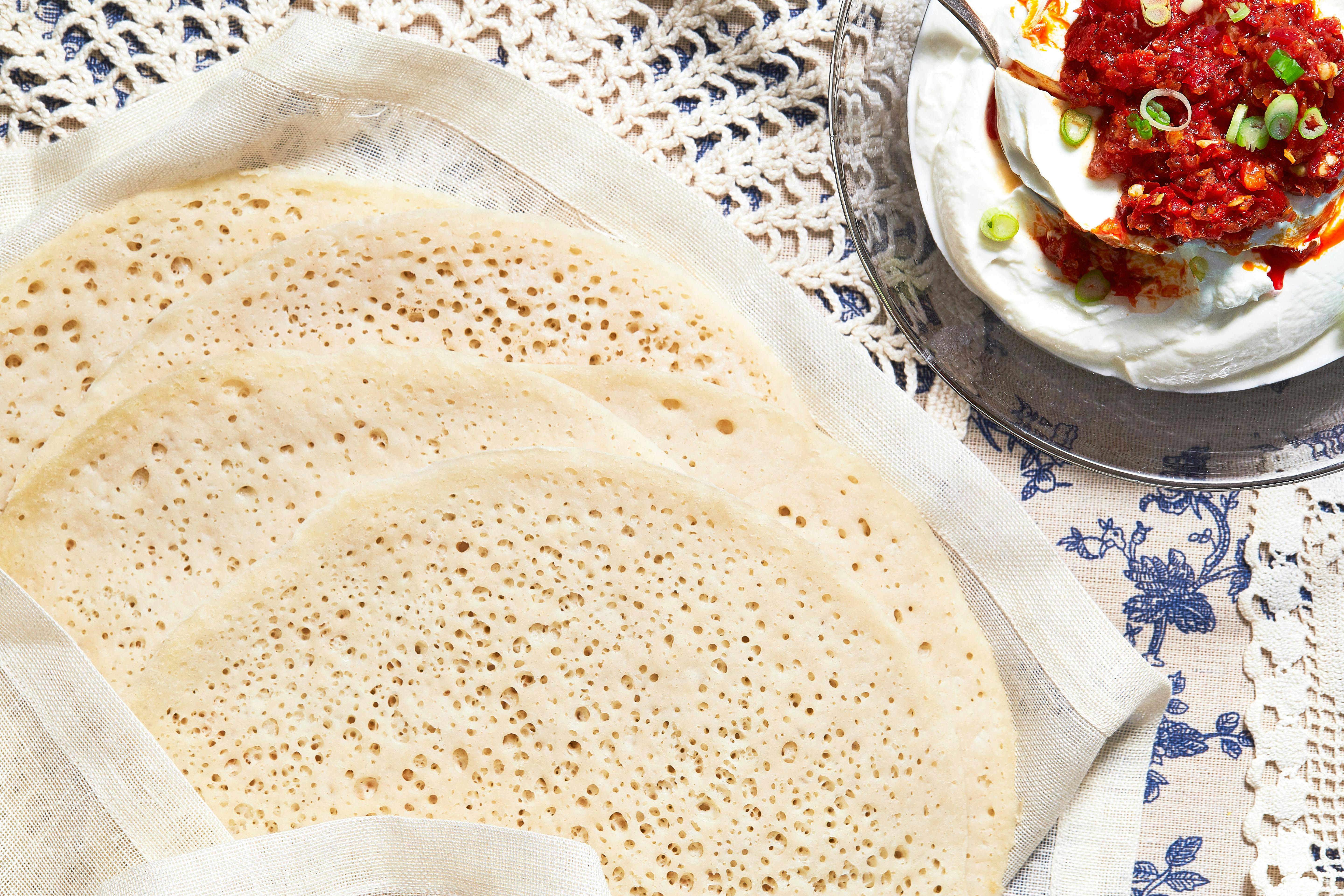Shared by Alana Zeitchik

When people think of Sara Karavany, they think of her food. Save for a few dishes like a classic Ashkenazi brisket she learned as an au pair and occasionally made as a novelty, Sara’s cooking was rooted in her native Yemen. Around age 12, her family fled to Israel soon after its founding, along with most of Yemen’s Jewish population. A few years later when she married Abraham Karavany — a boy she’d grown up playing with in their rural Yemeni village — she assumed the role of family cook.
“The kitchen really became her place, her comfort zone,” her granddaughter Alana Zeitchik explains. It’s here that “she found her sense of pride.”
From her narrow kitchen in Ramat Gan, just inland of Tel Aviv, Sara would crank out a seemingly endless stream of dishes from Yemenite beef soup to lachuch, a flatbread which Alana describes as similar to both Ethiopian injera and American pancakes. With Yemenite music coming from a black boombox and containers of onion and garlic stacked around her, Sara never seemed to sit. She ricocheted around the kitchen and plied family and neighbors alike with her cooking. Everyone treasured her food, but nobody bothered learning how to replicate it, until Alana showed up with a video camera.
Alana grew up in New Jersey, but would visit her savta (grandmother) and saba (grandfather) every summer. As a kid, she remembers her savta reaching out the kitchen window and plucking lemons off a tree, something that felt both alluring and foreign.
“You couldn’t walk in the door without food being stuffed in your face,” she says. “It was always there, and it wasn’t just for us. It was also for the neighbors. It was just her way.”
But Sara didn’t raise her kids — including Alana’s mother — to cook. She kept the kitchen her own, pushing her children out into the world. They learned to cook elsewhere, but largely ignored Yemenite cuisine.
At 30, Alana left her job and went on what she calls a “soul-searching mission” that first took her to Los Angeles, but ultimately she found herself sitting at the lone chair in her savta’s kitchen in the summer of 2016. A petite, joyous woman, Sara spoke minimal English and Alana’s Hebrew had faltered with time. It didn’t matter.
“Through the food I felt so connected to her, I didn’t need the language,” Alana says.
With a loose idea for someday opening a luncheonette driven by her savta’s recipes, Alana enlisted her Tel Aviv-based cousin to help with interpreting. They documented a range of comfort foods, including the workhorse lachuch. With no formal recipes, filming allowed Alana to best capture the process she likens to her grandmother’s form of religious worship.
Alana had arrived “on a mission to understand myself through my savta’s kitchen,” but at times she wasn’t exactly sure what she was doing there. A month after she left, Sara suffered an unexpected stroke, and suddenly Alana understood why she’d felt somewhat inexplicably called to that busy, modest kitchen.
“The food is her,” Alana explains. “You can’t separate the two.”
About a year later, Sara passed. Alana cobbled together her sprawling footage into an intimate and touching seven-minute short film filled with dancing, cooking, reverie, and quietude for the shiva, a traditional gathering in a Jewish home after the passing of a family member. Her saba would ask to watch it regularly for months afterwards.
By then, Alana was working as the director of brand marketing for Eater in New York. At the end of 2017, she left and started a pop-up called Savta with chef friend Caitlin Hubner, which they held at a range of restaurants including Win Son in Brooklyn. A sort of “Israeli-Yemenite infused American diner,” as Alana describes it, she pulled from what she learned in Sara’s kitchen.
She eventually returned to her media career, spending four years at Buzzfeed, but Alana is still intent on preserving her savta’s cooking by sharing it. “I still have a sense I will do more with this,” she says. “I don’t know what yet, but that is my intention.”
